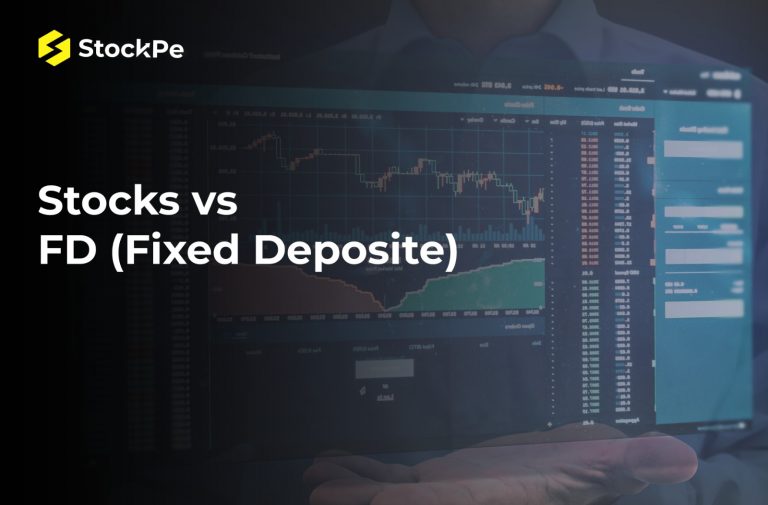Introduction to Pre-open market:
In the world of stock markets, the pre-open market session holds significant importance. It is a crucial period that occurs before the regular trading hours and plays a vital role in determining the opening price for various securities. In this article, we will explore the concept of the pre-open market and understand its significance in the trading ecosystem.
An important component of the trading session that enables market players to formulate their strategy before the start of regular trading hours is the pre-open market. Investors can make orders and choose the starting price for different assets at this time. We will examine the idea of the pre-open market, its importance, and how it affects the entire trading session in this post.

The pre-open market session is a short duration before the regular trading hours when investors and traders can place orders to buy or sell stocks. This period allows market participants to react to any significant news or events that might have occurred after the previous trading session ended. The purpose of the pre-open market session is to facilitate a fair and transparent price discovery process for securities.
Pre-open trading, sometimes referred to as pre-market trading or call auction trading, is a session that takes place before regular trading hours. Investors have a window of 15 minutes to make buy and sell orders during this period. This state’s main goal is to enable price discovery and establish the day’s starting price for securities.
The exchange gathers buy and sell orders during the pre-open market period, but no trading occurs. Instead, these orders are used to determine the opening price using the market’s dynamics of supply and demand. This makes sure that the opening price fairly represents the market’s sentiment and sets the stage for regular trading hours.
Key Features of the Pre-Open Market Session:
- Duration: The pre-open market session lasts for 15 minutes, typically starting at 9:00 a.m. (Indian Standard Time) for the National Stock Exchange (NSE). During this time, orders are collected, and the opening price for the securities is determined.
- No Cancellations Allowed: It’s important to note that once an order is placed in the pre-open market session, it cannot be canceled or modified. This ensures stability and prevents any unfair advantage by allowing last-minute changes.
- Order Types: Investors can place three types of orders during the pre-open market session – market orders, limit orders, and stop-loss orders. Market orders are executed at the best available price, while limit orders are executed at a specific price or better. Stop-loss orders are triggered if the stock reaches a specified price, helping investors manage their risk.
One of the key objectives of the pre-open market session is to determine the opening price for securities. The opening price is crucial as it sets the initial benchmark for the day’s trading. It is determined through a process called “open price discovery,” which takes into account the demand and supply dynamics of the market.
During the pre-open market session, the exchange collects all the buy and sell orders placed by investors. Based on these orders, a weighted average price is calculated, which becomes the opening price for the regular trading session. This method ensures that the opening price is a fair representation of the market’s sentiment.
Stock brokers play a crucial role in the pre-open market session. They act as intermediaries between investors and the exchange, facilitating the execution of orders. Stock brokers collect orders from their clients and transmit them to the exchange for processing during the pre-open market session. Their expertise and knowledge help investors navigate the complexities of the stock market efficiently.
The pre-open market session is of utmost importance for investors. It allows them to react to any significant news or events that may have occurred overnight or after the previous trading session. Investors can analyze the news and place their orders accordingly, enabling them to take advantage of any price movements that may occur at the market opening.
Moreover, the pre-open market session provides an opportunity for investors to reassess their trading strategies and adjust their positions based on new information. It helps them make informed decisions by considering the latest developments and market sentiments.
- Place Orders Early: As the pre-open market session lasts for only 15 minutes, it is essential for investors to place their orders early to ensure their participation and to benefit from the price discovery process.
- React to News: Stay updated with the latest news and events that may impact the market. Reacting to significant news during the pre-open market session can help you make timely and informed trading decisions.
- Monitor Opening Price: Pay attention to the opening price as it sets the initial benchmark for the day’s trading. Analyze the opening price and its impact on the overall market sentiment before executing your trades.
The pre-open market session is a crucial period that provides investors with an opportunity to react to the latest news and events before the regular trading hours begin. It facilitates fair price discovery and sets the opening price for securities. By understanding the pre-open market and its dynamics, investors can make well-informed decisions and navigate the stock market with confidence.
Remember, the pre-open market session lasts for only 15 minutes, so be prepared, stay updated, and take advantage of this important period to optimize your trading strategies.
Investors can set their strategy and choose the opening price for stocks during the pre-open market, a crucial part of the total trading day. A foundation for price discovery based on market demand and supply dynamics is provided by this brief but substantial window of 15 minutes. The pre-open market helps to preserve price continuity and minimizes abrupt price gaps by ensuring a smooth transition from the previous day’s closing price to the opening price for the current trading day.
The pre-open market session is a crucial time for investors and stock brokers to work together. Brokers help clients get through this time and submit orders to the exchange. Investors must closely monitor the pre-open market session since it enables order placement, modifications, and cancellations before the start of regular trading hours.
The pre-open market session is very important since it aids in investor preparation, enhances pricing efficiency, broadens investor involvement, and enables order revisions in response to fresh information or changes in the market. Making informed trading selections can considerably benefit market players who comprehend and use this phase properly.
As a result, the pre-open market prepares the ground for regular trading hours by providing a reasonable and effective opening price that captures investor emotion. Investors can improve their trading methods and master the stock market by being aware of this session and strategically utilising it.





